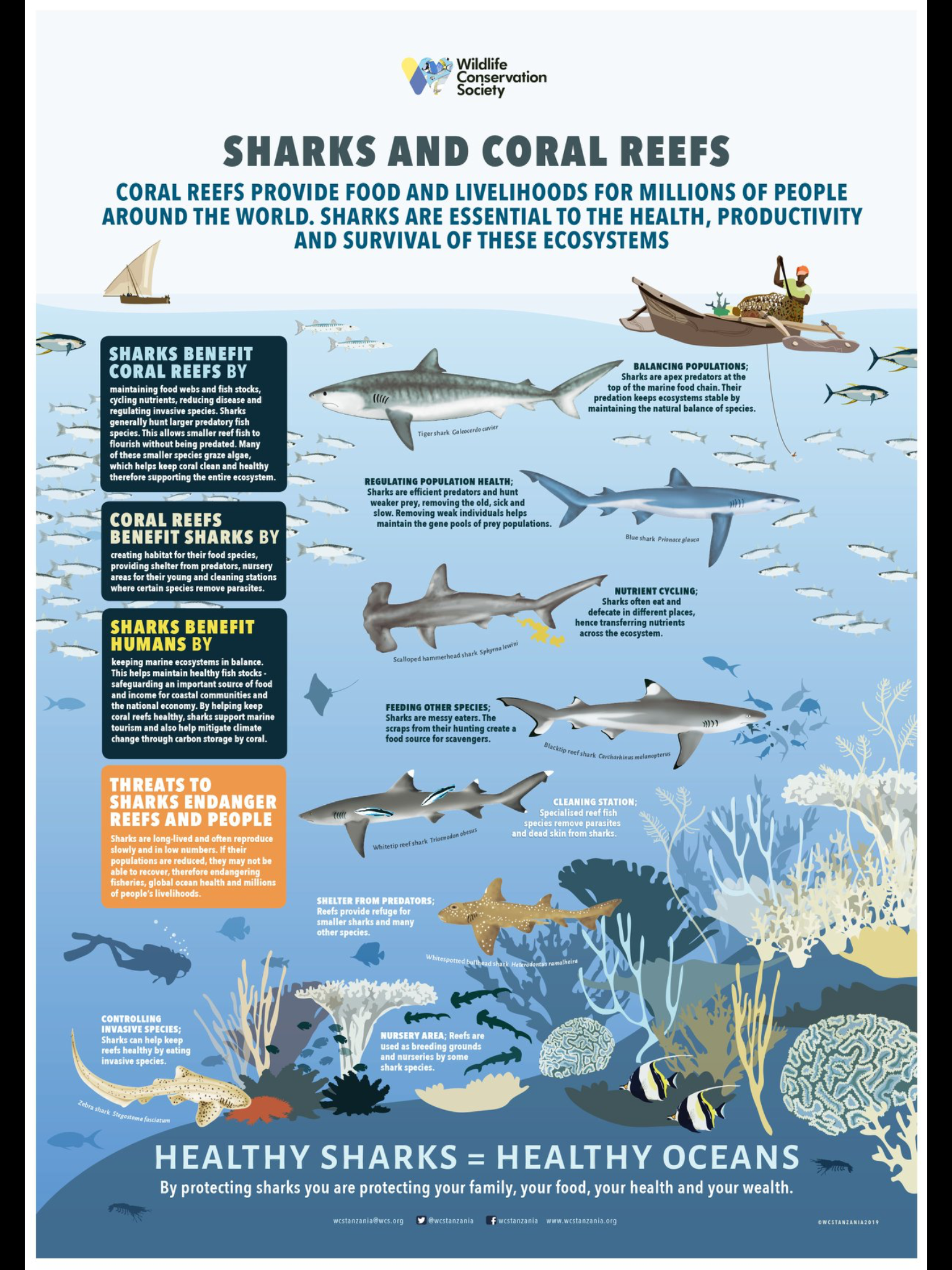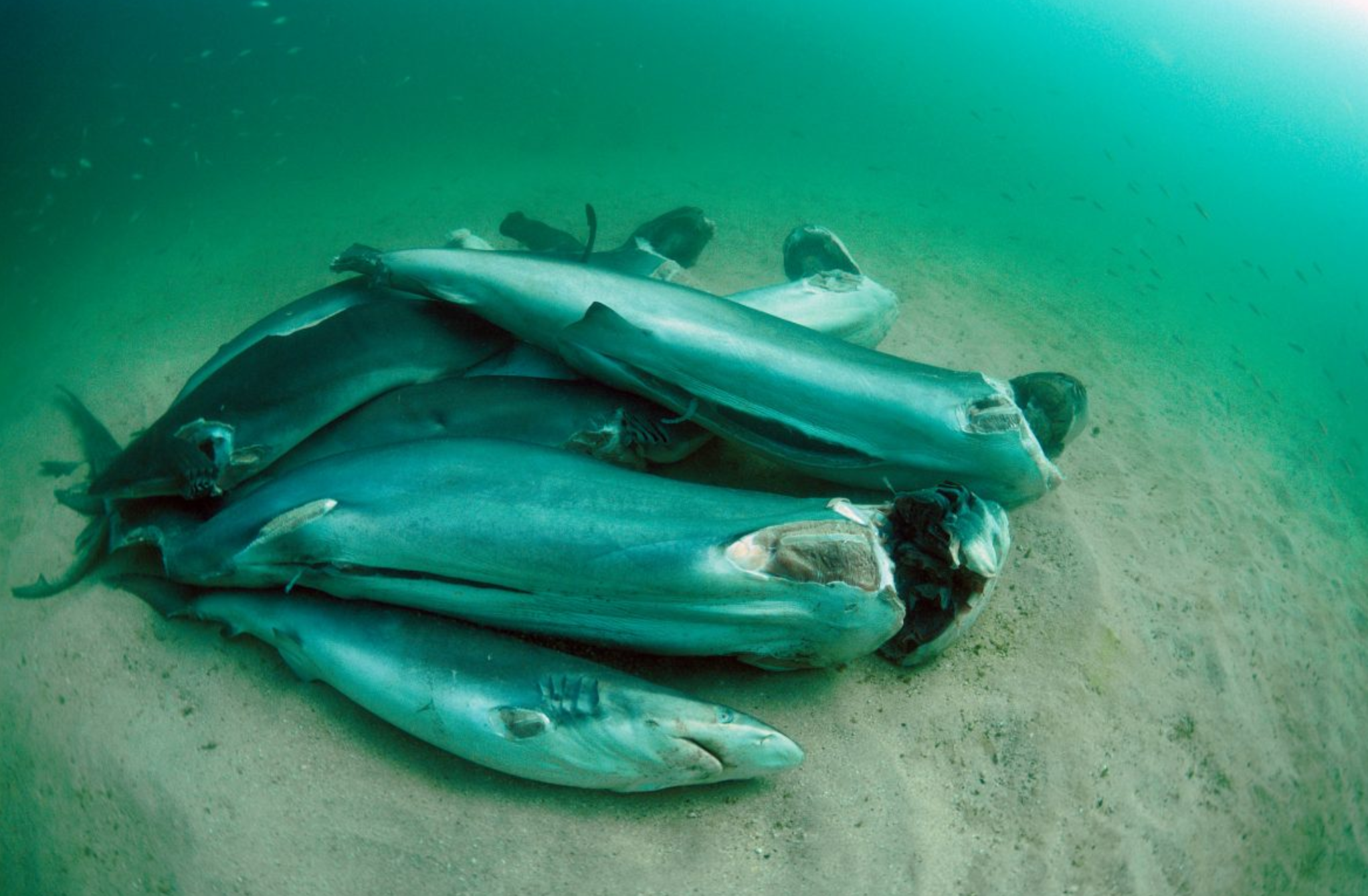Shark Finning

- On average 188m sharks are killed annually by human activity
- Shark fishing and finning is increasing exponentially to supply growing middle class Asian markets
- Sharks mature late (10 years on average) and produce few pups/eggs
- Targeted finning and bycatch are the main causes of death
The act of finning a live shark has to be one of the worst acts of animal cruelty. Around 188 million sharks on average are killed annually. The mass cruelty alone is a huge moral and ethical dilemma.
Why are sharks so important?
- As apex predators and keystone species, removing sharks from the ecosystem, via overfishing and finning, triggers a cascade of foodchain level collapse in an already fragile ecosystem threatened with warming, acidification, deoxygenation and more...
- Sharks prevent the spread of diseases by removing sick, dying or dead animals so are essential for a healthy ecosystem
- Declines in shark populations leads to degradation in reef ecosystems and drastic population declines in species for fishing or tourism. A 2020 study showed 20% of sharks have already from disappeared reefs in 58 nations.

- Many Shark Species have slow growth rates, low fertility rate, and late sexual maturity, meaning populations are extremely vulnerable to overfishing and take much longer to recover than other marine wildlife - especially open water sharks (pelagic). These are the top predators responsible for keeping the ecosystem in the High Seas in balance but they have the highest overlap with fisheries and so are the most vulnerable to fishing and finning
- In most parts of the world, including EU waters, sharks are not managed like tunas and overfished for the finning industry. There are no control rules in place and even protected species with catch quotas of zero are still a routine bycatch in the fisheries as they lack effective bycatch avoidance strategies. This leads to high vulnerability and sensitivity to human fishing impacts.
- IUCN lists over 100 species of sharks and rays as threatened with extinction. Yet only 46 are protected from illegal trade by CITES. this should be put in relation to the known species of sharks and rays or expressed as a percentage - more than one third or 36% of all known species.... and only CITES App I really prohibits international trade, while App II only requires an NDF that confirms they have been harvested sustainably - no real protection. So far no single shark has been listed on App I.
- Oceanic shark and ray populations have declined by 71% since the 1970s due to overfishing.
- Sharks affect climate change and they can be a part of the solution.
- Between 63 and 273 million sharks (Worm 2013) are killed by humans annually - most for the value of their fins.
- Accurate catch data is almost impossible to get due to extremely poor reporting and monitoring at sea (Oceanic white tip shark populations have crashed to 1% of 50 years ago) and some other shark populations to 10% from 30 years ago.
- Open ocean (pelagic) shark populations have crashed by 80-95% (with only 5-20% remaining of their previous numbers) over the last 30 years
- costal species are also at the edge of extinction like wedgefishes and guitarfishes which are all among the most threatened species today - critically endangered due to overfishing and specific targeting for their fins, the highest priced fins of all.
and the rest a combination of the following:
- 33% petfoods tested positive for shark DNA,
- Shark DNA has been found in several beauty & care products (scalloped hammerhead, blue, milk and blacktip)
- Squalene is the new beauty hype. It can be biotechnically engineered or use a vegetable substitute. But huge market exists for shark liver oil. (There are fishing factories that process more than 50,000 sharks per vessel per trip).
- Mislabeled shark meat as other fish sold at higher prices. In the UK sharkmeat has been found in many fish and chip samples. In Australia fish and chips are flake which is sometimes gummy, or even hammerhead or school shark - both threatened species in Australian waters.
- As long lived apex predators shark meat contain dangerously high levels of neurotoxins harmful to humans. The most important of which is methylmercury levels that often exceed safe limits in many tests of shark meat samples. This is linked to cancers, Alzheimers and many other diseases and is even passed on to fetuses. Shark meat also has been found to contain high concentrations of other harmful substances, eg microplastics, endocrine disrupting hormones, heavy metals etc
- acquaculture and livestock feed
- fertilizer
- Sports fishing Only 10% of catch and release are estimated to survive depending on the species. (70% of Mako survive if released immediately) Most fishers want to retain the shark as a trophy and for the meat This is a huge problem for open water sharks like Mako as they are valued trophies - especially in the US. (Hawaii has banned all shark fishing as of 2022)

Government Solutions
- Enforcing better control and limits and treatment of sharks as bycatch (increase their survivability rate)
- Take measures to minimise the impact of bottom trawling on sharks and rays
- Better controls of artisanal fishing fleets (in some cases accounting for 68% of shark and ray landings)
- Enforcing transparent monitored implementation of comprehensive bans on all shark finning by vessels
- urgently supporting North and South Atlantic retention bans without exception on mako sharks (Isurus oxyrinchus), as an initial step towards a no-retention policy for any unmanaged shark species.
- blanket bans on all shark fin cargo across all airlines and container shipping lines.
- Fully enforce the capture, trade and consumption of endangered species and introduce stricter regulation of shark and ray products intended for trade
- government legislation to ban the import and export of all shark fins.
- Define fishing zones with FULL fishing bans that take into account essential species and habitats for sharks and rays
Take Action
- www.flywithoutfins.org
- US ban on shark fishing
- Spread awareness on social media
- Boycott restaurants that use shark fins
- Sign a petition
- Advocate for regulations and laws banning the sale of shark fins